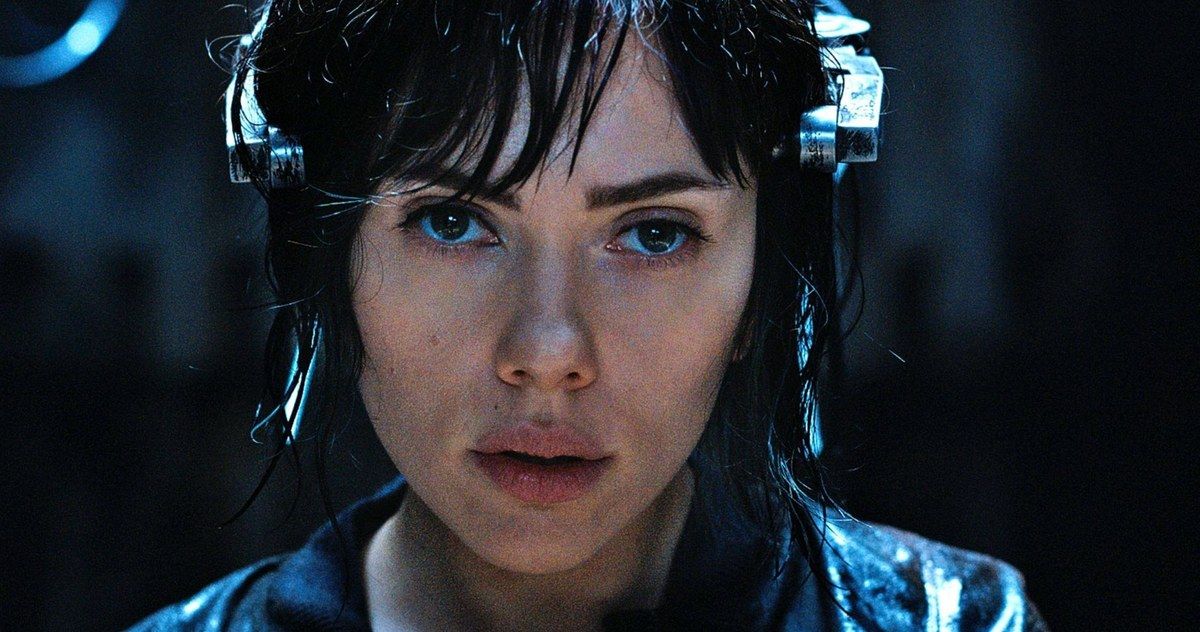The month of March hasn't traditionally been a time for huge box office blockbusters, but that has certainly changed in recent years, evidenced a few weeks ago by the record-breaking success of Beauty and the Beast. Another film hoping to capitalize on this upward trend was Paramount's Ghost in the Shell, although the movie was handily trounced by DreamWorks Animation's The Boss Baby, which opened with $50.1 million, while Ghost in the Shell debuted in third with $18.6 million, a lackluster pull for a movie budgeted at $110 million. As the fall out from this box office flop continues, one Paramount executive revealed in an interview that the whitewashing controversy likely lead to the negative critical reception, which may have impacted the box office performance.
Heading into the opening weekend, neither The Boss Baby nor Ghost in the Shell were critical hits, with Boss Baby currently posting a 50% rating on Rotten Tomatoes, while Ghost in the Shell posted a 45% rating among the nation's movie critics. The Boss Baby, starring a voice cast lead by Alec Baldwin, opened in 3,773 theaters while Scarlett Johansson's Ghost in the Shell opened in 3,440 theaters. While The Boss Baby had a slight advantage in theater count (9%) and critical reception (5%), the animated movie still earned more than twice what Ghost in the Shell earned in its opening weekend, although both movies are aimed at far different audiences. During an interview with CBC, Paramount domestic distribution chief Kyle Davies revealed that he thinks the whitewashing controversy impacted the reviews and the box office.
"We had hopes for better results domestically. I think the conversation regarding casting impacted the reviews. You've got a movie that is very important to the fanboys since it's based on a Japanese anime movie. So you're always trying to thread that needle between honoring the source material and make a movie for a mass audience. That's challenging, but clearly the reviews didn't help."
While there was no significant uproar when Scarlett Johansson was cast in the lead role of The Major, known as Major Kusanagi in the anime movie, after the first photo of the actress was released last spring, many fans started calling out the studio for casting a white female for a role typically portrayed as an Asian female. There was also a report last April that claimed Paramount ordered visual effects tests to make Scarlett Johansson appear more Asian than white, utilizing techniques known as "beauty work," which is typically used to make actors and/or actresses appear either younger or older than their actual age.
This movie is just the latest to come under fire for whitewashing. Recent films such as Aloha, which cast white actress Emma Stone as a half-Chinese/half-Hawaiian woman, Pan, which cast caucassian Rooney Mara as the Native American character Tiger Lily and Gods of Egypt, which cast a predominantly white cast to play Egyptian characters, all being heavily criticized and, coincidentally, all flopping at the box office. As for Ghost in the Shell, it has fared slightly better overseas in its debut, with a worldwide total of $62 million, but it will need a miraculous second weekend an beyond to become the box office blockbuster Paramount envisioned.

